|
|
| |
| |
 |
Pilot Actions and Final Conference of DanuBioValNet
|
| |
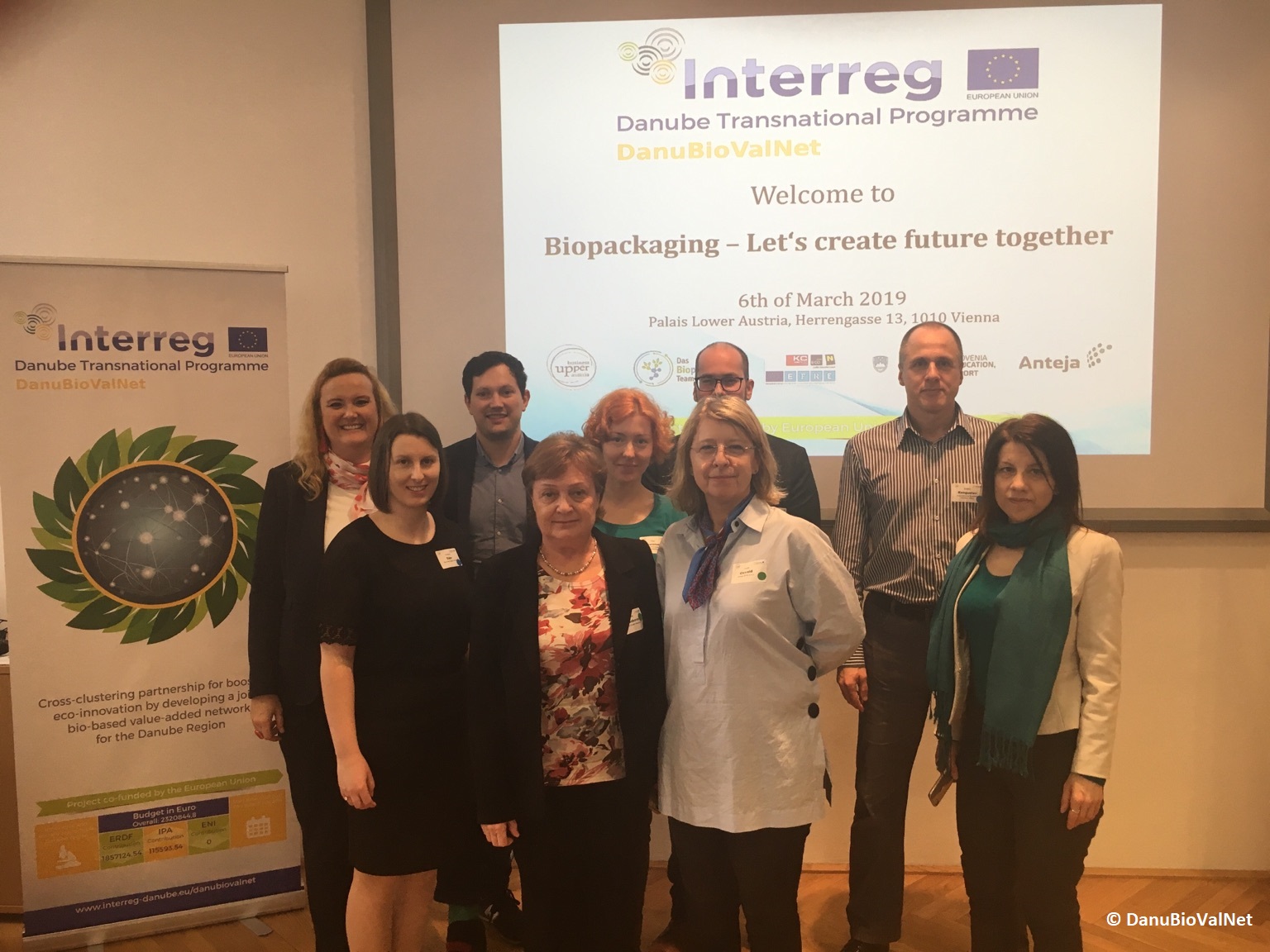 |
| |
|
Let's create future together - this was the aim of the "Biopackaging" event held in Vienna on 6 March 2019 as part of the DanuBioValNet project. 45 international representatives from companies, research institutions and cluster organisations discussed how the bioeconomy in the Danube Region can be strengthened and better networked. The aim is to promote the use of bio-based packaging solutions.
Two keynote speakers provided initial inputs for this international workshop. Mr. Polyvios Hadjiyiangou from Bio-based Industries Joint Undertaking (BBI JU) introduced this bioeconomy-devoted high-impact initiative structuring the bio-based industries in the EU. The BBI JU Strategic Innovation and Research Agenda (SIRA 2017) exemplifies the ability of bio-based industries’ potential to decarbonise major industrial sectors, such as chemicals and plastics, by replacing fossil-based carbon with renewal carbon as raw material. The BBI project portfolio covers 27 projects on bio-plastic production and biopackaging within the years 2014-2017 and new projects are expected to enter the Call 2019. Mr. Andrej Krzán from the National Chemical Institute Slovenia emphasised the role of policies, market actors and public in his presentation on "Better production solutions for better adaptation", including the necessity of good strategies based on pragmatic, systematic approach and realistic paths, such as linking large bioeconomy projects to existing regional resources. Andrej Krzán also moderated the subsequent plenary discussion on the issue of biopackaging. The lively participation already showed that the topic is very relevant throughout Europe and has a high significance for the people involved.
In the afternoon, the participants worked on different topics in three groups - 1. Bioplastics are only plastics - marketing of bioplastics and how to use the functionalities of bioplastics efficiently; 2. Biopackaging and circularity - real end of life scenarios that matter; and 3. Biopackaging - a European perspective of resource independence.
The working groups were moderated by three Austrian experts from the bioplastics sector: Johann Zimmermann from NAKU, Silvia Gloser from Brantner and Christian Mayr from the Plastics cluster of Business Upper Austria. The aim of the workshops was to identify and record problems in the field of bioplastics, to work out possible solutions, to exchange ideas and, if possible, to initiate cooperation. Jointly, the issues of higher awareness and better legal framework concerning the bio-based packaging were featured to understand its sustainability, biodegradability, recyclability and reusability aspects, market functionality and synergies with circular economy.
The large number of participants from six countries showed how urgent and relevant this topic is for the bioeconomy advance of the Danube Region, the market uptake of bio-based packaging and its significance as a part of the European industry enhancing its capacity to substitute fossil raw materials.
Author: Business Upper Austria, Kristina Eder
|
|
| |
 |
Eco Construction – building with wood, recycling and reuse
|
| |
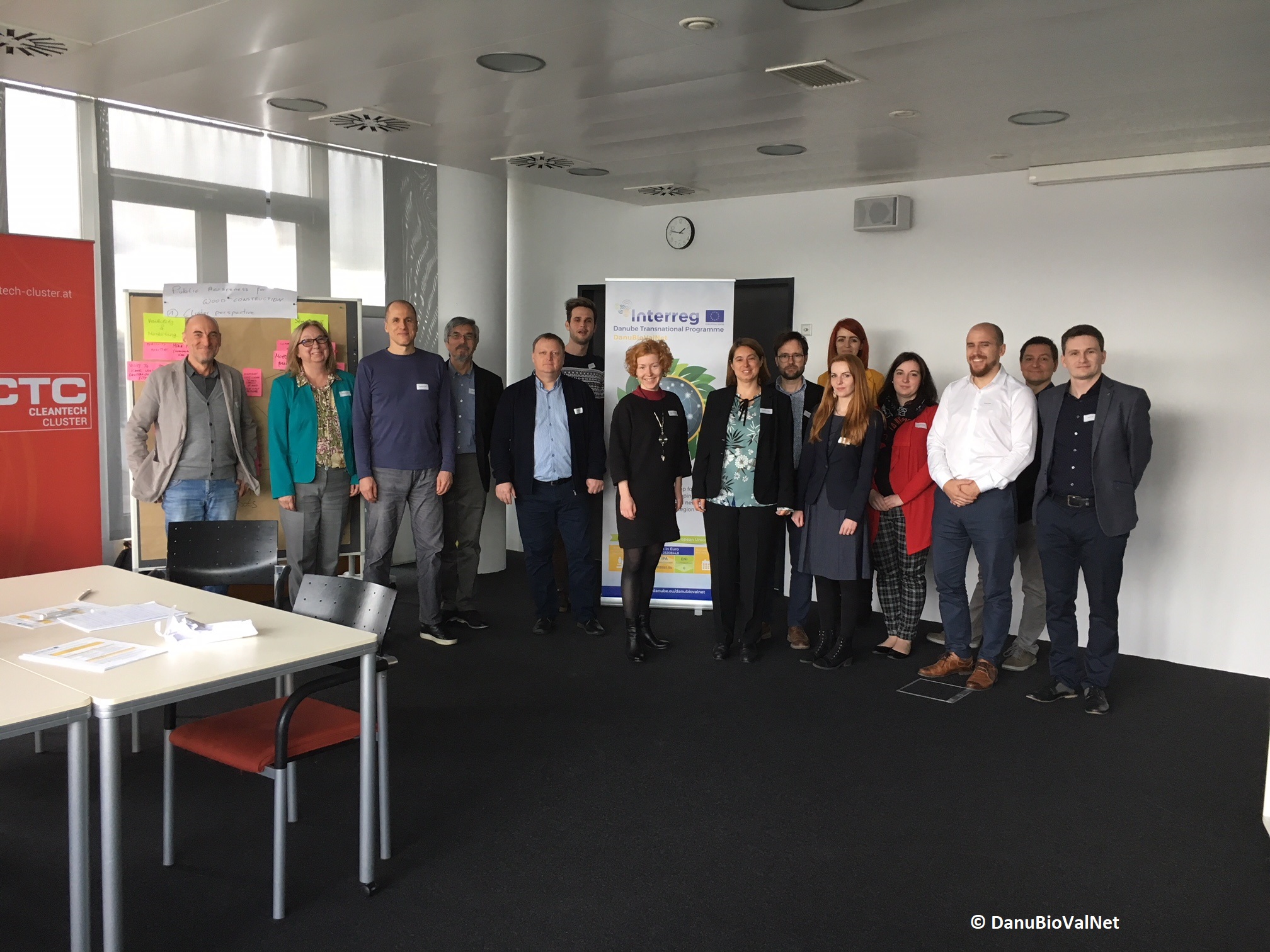 |
| |
|
The workshop “Eco-Construction – building with wood, recycling and reuse” aimed to match related cluster actors in order to create eco-innovations along the selected value chains (VC). The workshop was organized by Cleantech Cluster from Business Upper Austria and took place on the 13th and 14th of March 2019 in Linz, Austria, at the premises of Business Upper Austria, Tech center Linz.
The objective of this Pilot Action was to facilitate cross-border and cross-regional cooperation of clusters and SMEs for creation of a bio-based value chain. Among the major topics there were the presentations of the best practice examples from Austria for Eco-Construction, followed by a workshop on how to support and promote the use of wood and bio-based materials in construction projects within the Danube countries.
The keynote speeches of the event were focused on the two most prominent gaps within the Eco-Construction value chain that can be overcome with the help of cluster organizations. The first topic of the Architects & Technicians collaboration based on the showcase Vorarlberg Region was presented by Harald Gmeiner, Head of Ecological Building Division, Energieinstitut Vorarlberg. The second topic of Business & Academia collaboration was demonstrated on the computer-aided planning and production with systematized construction methods by Astrid Metzler from the University of Innsbruck - Institute of Design and Materials Science, Department of Timber Construction.
After the keynote speeches the interactive workshop took place. The participants were divided into two groups discussing the topics on how to promote and support Eco-Construction with wood in the Danube countries. Instruments used were brainstorming, discussion, visualization on the flipchart, summarizing, and presentation on the plenary to the whole audience. As the Cleantech Cluster is involved in the circular economy projects, the Baukarussell Vienna initiative for recycling oriented dismantling with a special focus on reuse in construction business was presented. The workshop attracted 20 participants of different target groups from 6 countries.
Author: Business Upper Austria, Andrea Bruckner
|
|
| |
 |
The Danube Phytopharma Forum
|
| |
 |
| |
|
The workshop of “Danube Phytopharma Forum: Converting bio-based resources into successful phytopharmaceutical products” was co-organized by the Association of Business Clusters (ABC), Bulgaria, and the lead partner of the project DanuBioValNet - BIOPRO Baden-Württemberg GmbH in collaboration with Green Synergy Cluster (GSC) and Bulgarian National Association Essential Oils, Perfumery and Cosmetics (BNAEOPC).
The event was held on 9 and 10 of May 2019 in Sofia and Plovdiv in Bulgaria. The forum attracted 22 participants representing different project target groups from 8 countries. It brought together interested companies, clusters' managers, business support organizations and experts from academia of the Danube region. The objective was to create innovative ideas for new products and projects by facilitating cross-country cooperation of the stakeholders, and thus to launch the macro-regional network along the “Phytopharma” value chain (VC).
The first day provided a workshop for experience exchange and co-creation of innovative ideas which took place in the Lab Complex in Sofia Tech Park. The forum was opened by Svetlin Ranguelov (ABC), who welcomed and greeted the participants on behalf of DanuBioValNet. After Olga Boyarintseva (BIOPRO) introduced the project, partners, main goals and target groups S. Ranguelov continued with outlining the objectives of the workshop, the opportunities for the participants and the program of the day. Two presentations followed -by Gergana Andreeva (BNAEOPC) and by Liyana Adjarova (GSC) and served as a spark for further discussion. The workshop continued with 2 minutes self-presentations of the participants. Olga Boyarintseva opened the door for the main topic with a Problem statement within the VC Phytopharma. Afterwards, a discussion moderated by Madlena Vladimirova (ABC) helped the participants share their personal experience as actors of this VC. The afternoon programme included the visit to the “Laboratory for extraction of natural products and synthesis of bioactive compounds”. The workshop continued with a Moderated expert discussion in two groups with the goal to look for new joint ideas/solutions to cover the gaps of the VC and meet its expectations. After the results were presented, the workshop continued with a collaborative discussion about future products, services, projects, partnerships, cooperation possibilities. This was a unique part, introduced only during the Phytopharma Pilot Action, where the participants were given the opportunity to share their visions for future growth and mutual success along the VC.
On the second day, the participants had the opportunity to visit in the Plovdiv region’s Bulgarian rose fields, Rosa Impex Cosmetic Company Ltd (phytopharma production facility), the brand new building of Vitanea (bio juices, products, and supplements) and Galen-N HQ (distillery and extraction facility for phyto substances for pharmacy).
Author: Association of Business Clusters, Bulgaria
|
|
| |
 |
The DanuBioValNet Project Final Conference
|
| |
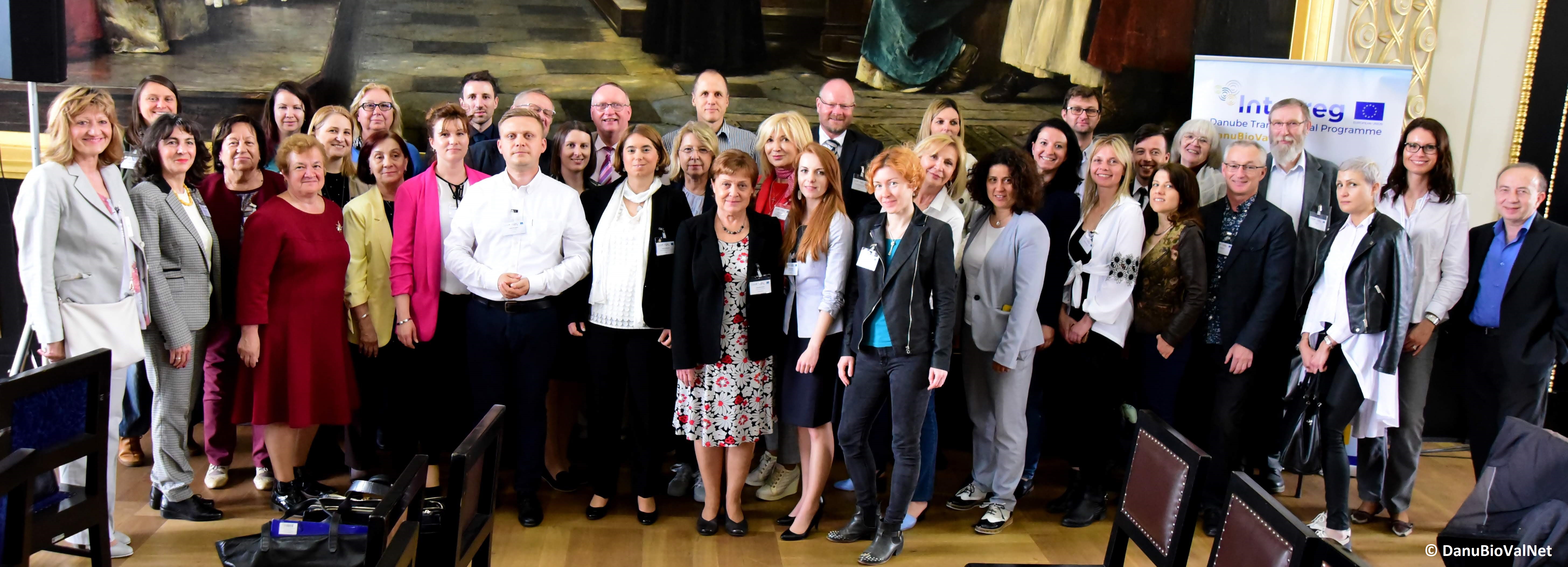 |
| |
|
On 28 and 29 May 2019, the partners from nine Danube Region countries of the DanuBioValNet project came to Prague to share their experience and present proposals for strengthening inter-sectoral coordination and boosting the Danube Region’s bioeconomy at a final conference entitled “Sustainable Transformation of the Danube Region and the Future of Bioeconomy-based Competitiveness”. The bioeconomy and the transition of the Danube Region countries towards the bio-based economy which holds huge potential for tackling the environmental threats to our planet, were the key topics of the DanuBioValNet project, launched 2½ years ago. The final conference of the DanuBioValNet project was organized jointly by the INTERREG Danube Transnational Programme (DTP) DanuBioValNet project and the Priority Area 8 of the EU Strategy for the Danube Region (PA8 EUSDR).
The desired transition towards higher sustainability and competitiveness of the Danube Region affects the society as a whole and needs the commitment and integration of all economic sectors to address today’s challenges, such as demographic change, climate change and digital revolution. To support the transformation processes, macroregional strategies and programmes set the framework for practitioners to implement their projects based on the actual needs of the regions.
The Joint conference of the INTERREG Danube Transnational Programme (DTP) DanuBioValnet project and the PA8 EUSDR brought together both worlds, exploring the future development potential for a competitive Danube Region and the role of regions, cities, clusters and companies in an increasing complex economic ecosystem.
The opening topic of Supporting Transformation – About Programmes, Strategies and Projects was introduced by Nirvana Kapitan Butković, Coordinator of PA8 EUSDR - Ministry of Economy, Entrepreneurship and Crafts, Croatia, while the representatives of the Czech Ministry of Industry and Trade of the Czech Republic - Marian Piecha and Jitka Savin pinpointed the importance of innovation and transfer of knowledge within the internationalisation activities represented by such projects. The role of regions and clusters in times of transformation was illustrated on the bioPmed Piemonte Healthcare Cluster, Italy, by Alberto Baldi, Cluster Manager. Dr. Besnik A. Krasniqi, Adjunct Professor of the Maastricht School of Management, Netherlands, presented new regional cooperation models – how regional developers, policy makers can build new partnership in times of industrial transformation. The fact that clusters have a significant impact on regional transformation was summarised by Daniel Cosnita, President of Clustero, Romania, and Petko Georgiev, Chairman of the ICT Cluster – Burgas, Bulgaria.

The first conference day culminated with the presentation of the DanuBioValNet project lead partner - Dr. Dominik Patzelt, BIOPRO Baden-Württemberg GmbH, Germany introducing the Policies supporting regional transformations – The Bioeconomy Strategy of Baden-Württemberg. Alberto Baldi (Italy), Dr. Besnik A. Krasniqi (Netherlands), Daniel Cosnita (Romania), Petko Georgiev (Bulgaria), Jiří Herinek (Czech Republic) and Dr. Dominik Patzelt (Germany) took part in the following panel discussion on Key features of a perfect regional innovation strategy moderated by Lukas Nögel, ClusterAgentur Baden-Württemberg, Germany.
The second day of the conference (29 May) took place in the Old City Hall of Prague. The conference patrons included the Office of the Government of the Czech Republic and two key ministries that are closely involved in the issues addressed by the project: the Ministry of the Environment and the Ministry of Industry and Trade. The event attracted a large number of delegates from government institutions on both the national and regional/city levels, as well as representatives of clusters, companies and universities. Key topics discussed at the conference included the importance of functional interaction on the international and regional levels and the strengthening of inter-sectoral links. One way to create new links among different sectors exploiting renewable resources is to develop infrastructure involving participants along these sectors’ entire value chains – and cluster organizations are an ideal vector for this type of collaborative infrastructure. A cluster forms a managed, coordinated, sector-specific ecosystem enabling a complete value chain to function with maximum effectiveness and support for SMEs. By highlighting the topics outlined above, the Prague conference emphasized the crucial future role that regions will play in creating better framework conditions to support innovation and the transformation to a bio-based economy.
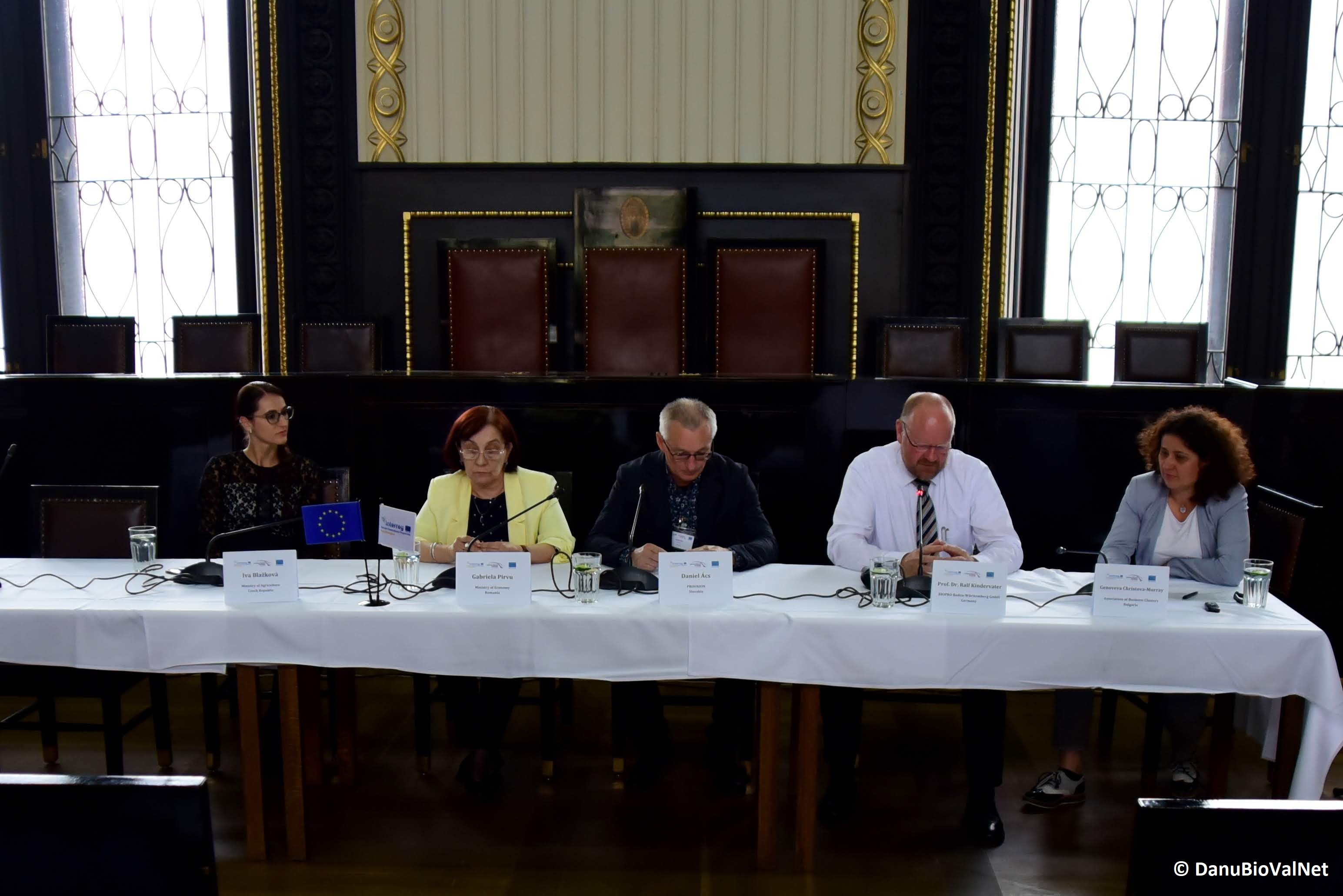
Professor Ralf Kindervater, the CEO of Baden-Württemberg’s BIOPRO agency, the lead partner in the DanuBioValNet project explained what the project has achieved: “During the project implementation we have created links between existing clusters and a sector that is still relatively new within the Danube Region – the bio-based economy. We see these links as a viable way of bringing sustainable, environmentally responsible products to the market.”
The DanuBioValNet has demonstrated that emerging bio-based industries – specifically phytopharmaceuticals, eco-construction and bio-based packaging – possess strong potential and can bring major benefits for regional development. However, it is essential that policymakers and key institutions take a positive view of these emerging industries, as only they are able to create suitable conditions for ongoing sustainable growth. The project partners therefore intend to intensify their existing collaboration in the upcoming period, enabling them to make genuine progress towards achieving their goals.
Author: National Cluster Association, Czech Republic
|
|
| |
 |
the Danubiovalnet project awareness campaigns
|
| |
|
The DanuBioValNet awareness campaign culminated in the last two project periods by its promotion at a number of events throughout Europe. (Sorted in the following order: Date; Name of the event; Venue; Organised; DanuBioValNet project representative)
27.09.2018 - INTERREG A Oberrhein meets INTERREG B - The added value of INTERREG projects; Karlsruhe (DE); Joint Secretariat of the German-French-Swiss Conference of the Upper Rhine; Dr. Dominik Patzelt, BIOPRO Baden-Württemberg
17.10.2018 - Capitalization Workshop; Sofia (BG); INTERREG Danube Transnational Programme, Thematic Pole 1 “Innovative ecosystem for SMEs”; EU Strategy for the Danube Region, PA 8 „Competitiveness of Enterprises”; Dr. Dominik Patzelt, BIOPRO Baden-Württemberg
18.-19.10.2018 - 7th Annual EUSDR Forum; Sofia (BG); EU Strategy for the Danube Region; Dr. Dominik Patzelt, BIOPRO Baden-Württemberg
02.11.2018 - Second Policy Dialogue and EUSDR PAs’ Cross-fertilisation Workshop: Competitiveness and Innovation for Long-lasting Transnational Collaboration in the Danube Region’s Bio-economy field; Bucharest (RO); Ministry of Research and Innovation (Romania); Ruxandra Popovici, Ministry of Economics (Romania)
09.11.2018 - Capitalization workshop devoted to transnational cooperation of SMEs in innovations; Stuttgart (DE); Ministry of Economic Affairs, Labour and Housing of Baden-Württemberg (Germany); Dr. Dominik Patzelt, BIOPRO Baden-Württemberg
20.-22.11.2018 - Joint Romanian-Hungarian Cluster Conference; Oradea and Debrecen (HU, RO); Ministry of Finance (Hungary); Romanian Cluster Association CLUSTERO; INTERREG Europe CLUSTERIX 2.0; Dr. Dominik Patzelt, BIOPRO Baden-Württemberg
27.02.2019 - BIOECONOMY FOR SUSTAINABLE DEVELOPMENT - awareness workshop; Prague (CZ); National Cluster Association (NCA), Prof. Dr. Ralf Kindervater, BIOPRO Baden-Württemberg
20.03.2019 - The Power4BIO project’s regional event (Interreg CE); Ceske Budejovice (CZ); South Bohemian University; Pavla Bruskova, NCA
25.04.2019 - Info Day - BBI JU Call; Prague (CZ); Technology Centre of the Czech Academy of Sciences; Pavla Bruskova, NCA
16.05.2019 - European Cluster Conference 2019; Bucharest (RO); European Commission; Pavla Bruskova, NCA
28.-29.05.2019 - Joint Conference „Sustainable Transformation of the Danube Region and the Future of the Bioeconomy-based Competitiveness”; Prague (CZ); DanuBioValNet (NCA); EU Strategy for the Danube Region, Priority Area 8 „Competitiveness of Enterprises”; Representatives of the DanuBioValNet consortium
05.-06.06.2019 - 15th Meeting of the Mixed Government Commission Baden-Württemberg - Hungary 2019; Budapest (HU); State Ministry of Baden-Württemberg (Germany); Dr. Dominik Patzelt, BIOPRO Baden-Württemberg
26.06.2019 - Workshop „Realizing the bioeconomy potential in the regions: policy and practice“; Brussels (BE); European Chemical Regions Network; Dr. Dominik Patzelt, BIOPRO Baden-Württemberg
27.-28.06.2019 - 8th Annual EUSDR Forum; Bucharest (RO); EU Strategy for the Danube Region; Dr. Dominik Patzelt, BIOPRO Baden-Württemberg
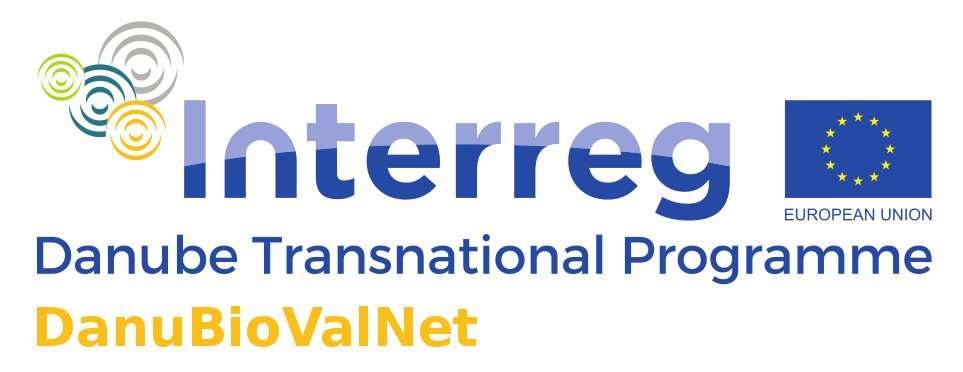
Project DanuBioValNet is co-funded by European Union funds (ERDF, IPA)
dtp.interreg-danube.eu/danubiovalnet
|
|
|
|
|
| |
|
If you have received this newsletter, you have been included on one or more of the Danube Transnational Programme/projects postal mailing lists. We are committed to respect and protect the privacy of personal data collected. We regard your personal data as confidential information and will never communicate it to third parties. Your personal data are used mainly for the express purpose of receiving the newsletter. Your mailing details may also be used by the DTP and its projects for information and dissemination purposes strictly related to the programme and its projects. If you prefer not to receive more of this newsletter and your data not to be used for dissemination purposes, you can unsubscribe by sending a reply email.
|
|
|
|
|
|
